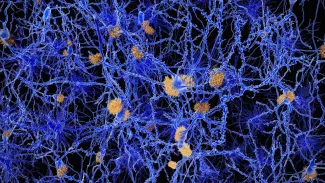The Sam and Ann Barshop Institute for Longevity and Aging Studies at UT Health San Antonio is one of the world’s premier institutes dedicated to age-related diseases and is the only aging-intensive research institute in the country to have four designations. Barshop Institute’s mission in understanding the basic biology of aging and discovering therapies that will treat and cure debilitating aging diseases.
The Barshop Institute supports its predoctoral and postdoctoral trainees in part through the Biology of Aging Training Program (T32). This program allows them to design, conduct and present their research to those focused on aging research.
UT Health San Antonio partners with the U.S. Department of Veterans Affairs Geriatric Research, Education and Clinical Center (GRECC) at the Audie L. Murphy Memorial VA Hospital to initiate clinical trials to further advanced knowledge of age-related diseases and provide preventive solutions.
Two National Institute on Aging-funded centers: Nathan Shock and Claude D. Pepper
NIA-sponsored Interventions Testing Program site
U.S. Department of Veterans Affairs Geriatric Research, Education and Clinical Center (GRECC)
In The News
Ellen Kraig, PhD, professor in the Department of Cell Systems and Anatomy in the Joe R. and Teresea Lozano Long School of Medicine at the University of Texas at San Antonio (UT San Antonio), has been named a Distinguished Fellow of the American Association of Immunologists (AAI). The AAI Distinguished Fellow designation recognizes members with […]
Dementia is one of the most challenging medical and societal issues of our time, affecting memory, thinking and independence for millions of families worldwide. At UT Health San Antonio, researchers and clinicians are taking new steps to change that story through research, genetic insights and compassionate, integrated care. At the heart of this mission is […]
The opening of UT Health San Antonio’s Center for Brain Health marks a step forward for families affected by amyotrophic lateral sclerosis (ALS), frontotemporal dementia (FTD) and other rare neurodegenerative diseases. Understanding ALS ALS is a degenerative disease of nerves called motor neurons, which are in the brain and spinal cord. It is most […]


